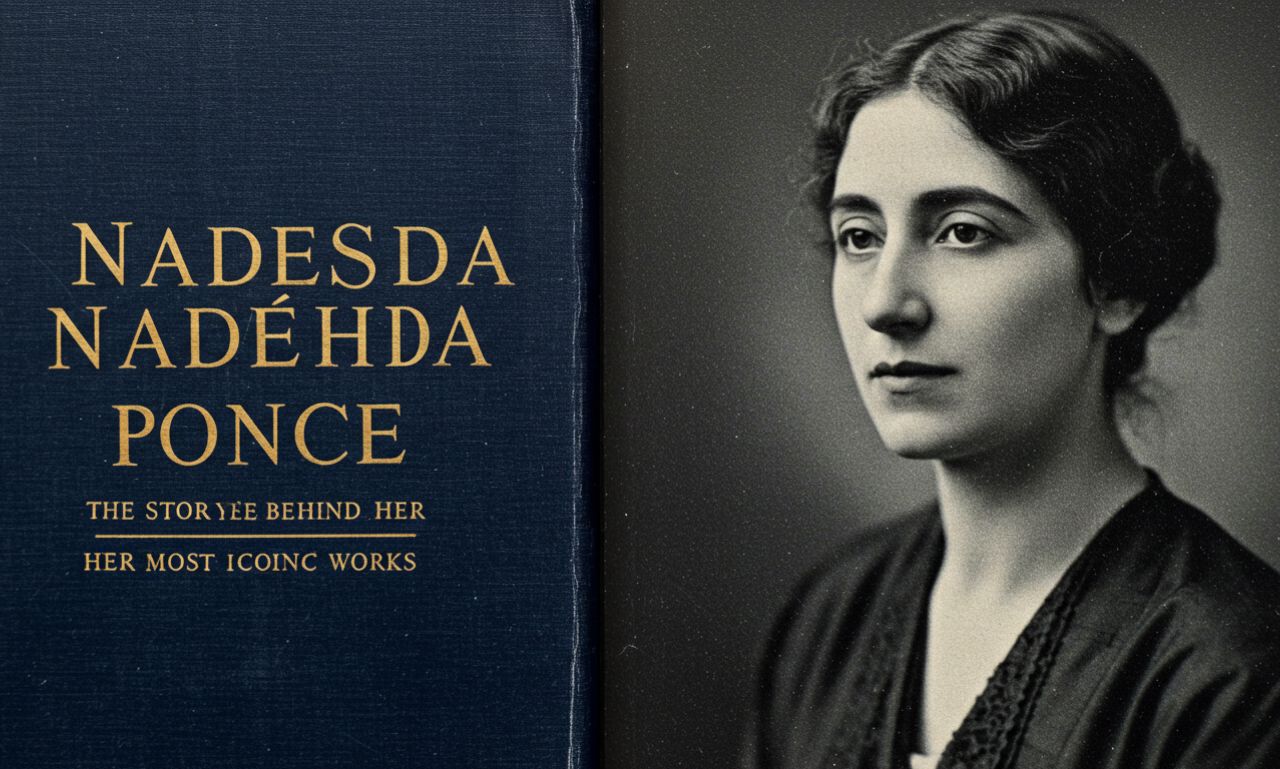Introduction to Nadeshda Ponce and her work
Nadeshda Ponce is a name that resonates with readers who seek depth and authenticity in literature. Her works are not just stories; they are vibrant tapestries woven with cultural threads that reflect diverse experiences and perspectives. As we delve into her writing, we discover how she masterfully captures the essence of her heritage while exploring universal themes that resonate across borders. Whether you’re a longtime fan or new to her work, there’s something fascinating about how Ponce navigates the complexities of identity, belonging, and the human experience through her narratives. Join us as we explore the rich cultural landscapes in Nadeshda Ponce’s literature and uncover what makes her voice so impactful today.
The importance of cultural narratives in literature
Cultural narratives serve as the backbone of literature, weaving together the threads of identity, tradition, and experience. They give voice to diverse perspectives that shape societies.
Through storytelling, readers gain insight into different customs and values. This fosters empathy and understanding across cultural divides. Each narrative offers a unique lens through which we can explore human experiences.
Literature allows for the challenging of stereotypes and misconceptions. It invites us to engage with stories that might be vastly different from our own lives yet resonate on fundamental levels.
When authors share their cultural narratives, they preserve histories in vibrant ways. These stories become a bridge connecting generations while inviting reflection on shared humanity. Cultural narratives enrich our literary landscape by celebrating diversity and prompting critical conversations about who we are as people.
Cultural themes in Ponce’s writing
Nadeshda Ponce weaves cultural themes into her narratives with remarkable finesse. Her characters often navigate the complexities of identity, belonging, and heritage. Through their journeys, readers explore the multifaceted nature of culture.
Ponce skillfully incorporates elements from various traditions, allowing for a rich tapestry of experiences. This blending not only reflects her diverse background but also resonates with many who share similar stories.
Language plays a crucial role in Ponce’s work as well. She uses it to capture nuances that shape cultural perspectives. The dialogue sparkles with authenticity, making each character relatable and vivid.
The theme of migration frequently emerges in her stories too. It highlights both struggle and resilience, showcasing how individuals adapt while holding onto their roots. In doing so, she sheds light on the broader human experience within unique cultural contexts.
Analysis of key works by Ponce
Nadeshda Ponce’s works are a tapestry of vivid storytelling and cultural exploration. Each piece invites readers into a world rich with detail and authenticity.
In “Whispers of the Forest,” she intertwines folklore with personal narrative, illustrating how heritage shapes identity. The lush descriptions transport readers to her roots, creating an immersive experience.
Another standout is “Echoes of Silence.” Here, Ponce delves into themes of displacement and belonging through powerful character arcs. Her ability to portray emotion resonates deeply with audiences.
“Threads of Connection” showcases her skill in blending various cultural elements. It highlights universal experiences while celebrating uniqueness, making her narratives relatable across diverse backgrounds.
Ponce’s characters often grapple with societal expectations, reflecting real-world struggles that many face today. This depth adds layers to her storytelling that keep readers engaged long after they turn the last page.
Impact of Ponce’s work on cultural understanding and representation
Nadeshda Ponce’s works resonate deeply within the realm of cultural understanding. They serve as a bridge, connecting diverse experiences and perspectives.
Her narratives challenge stereotypes, inviting readers to explore cultures beyond their own. This engagement fosters empathy and awareness.
Ponce deftly illustrates the complexities of identity, allowing characters to navigate their multifaceted worlds. Readers find themselves reflecting on their own backgrounds while embracing new viewpoints.
Moreover, her storytelling brings underrepresented voices into mainstream discourse. By highlighting these stories, she amplifies conversations around race, ethnicity, and belonging.
As audiences dive into her vibrant tales, they are encouraged to confront biases and preconceived notions. The impact is profound; it cultivates an enriched appreciation for cultural diversity that lingers long after the last page is turned.
Comparison to other authors exploring similar themes
Nadeshda Ponce’s exploration of cultural narratives resonates with the works of several contemporary authors. Writers like Chimamanda Ngozi Adichie and Junot Díaz also delve into identity, migration, and belonging.
Adichie’s novels often weave personal stories with broader societal issues, reflecting on Nigerian culture while challenging stereotypes. Her narrative style bears similarities to Ponce’s immersive storytelling.
On the other hand, Junot Díaz uses a blend of humor and poignancy when addressing immigrant experiences. His characters navigate complex identities that echo Ponce’s themes but through a distinctly Dominican lens.
Both authors highlight the richness of their cultures while confronting adversity. They share a commitment to authenticity in representation, making them powerful voices in literature today alongside Nadeshda Ponce.
This interplay between different writers enriches the literary landscape. Each author contributes uniquely to discussions around culture and identity, offering readers multiple perspectives within shared themes.
Conclusion: the power of literature to shape cultural narratives
Literature holds immense power. Through storytelling, authors like Nadeshda Ponce can illuminate cultural narratives that resonate deeply with readers. By weaving intricate tales that explore identity, heritage, and societal issues, Ponce not only entertains but also educates.
The stories we read can shape our understanding of different cultures. They foster empathy and encourage dialogue about experiences often overlooked or misunderstood. Ponce’s work invites us to reflect on our own narratives while appreciating the richness of others.
As we delve into her writing, we recognize literature’s role in bridging gaps between diverse communities. It opens doors to conversations about differences and commonalities alike. The impact of such narratives extends beyond pages; they inspire change in perspectives and attitudes.
Nadeshda Ponce exemplifies how storytelling transcends borders. Her contributions remind us that every narrative has the potential to enrich our lives and expand our worldview through literature’s profound influence on culture.

